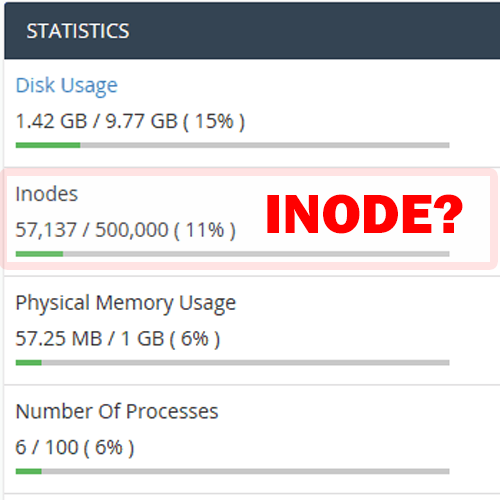You often see inode numbers in cPanel’s hosting providers. But you do not know what is the meaning of it?

In the article today I will explain more about an inode.
What is Inode in Hosting?
Inode is the data structure within Linux used to store information about the file system object (file or directory). This information includes size, owner, socket, pipe except for data and file name.
The amount of inode is equal to the number of files and folders you have. This includes everything in your account, emails, files, folders and whatever you store on the server, for example, every new file or directory equals plus 1 to the current inode amount.
Once a file is opened, the file’s inode is read by the server’s kernel. The more files and folders you have, the larger the number of inodes. The more inode, the more resource use account.
So most hosting providers limit the amount of inode to avoid one account taking up the resources of another account on the same shared server.
How to reduce the number of inodes in your account?
1. Remove all the files and folders you do not need
Do you need to check if you have a backup file or directory on the host? Usually, these files are very large.
So you should download it. The best way is to back up the cloud storage service instead of the host.
2. Check the number of cached files you have
WordPress sites now use the plugin cache. So you should check the cache directory of the website. Reduce the number of files you are holding in them.
The plugin cache has the option of purge cache. You can use this feature to reduce the number of cache files.
3. Check the email box
If you use the host as the mail server, check the Trash or Sent directory to your email account. You can download them and delete them on the server.
If you still have a large number of files or directories, and cannot be reduced, it is time to upgrade to a larger package with larger inodes. Or switch hosts if your host does not have a package with higher inodes.
If you still have questions regarding inode, leave a comment below
